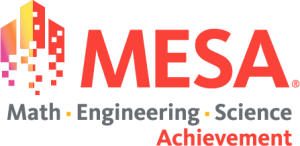Pre-Calculus
Course Number: MATH 1
Units: 4
Class: 4 hours lecture (GR)
Prerequisite(s) MATH 203 or 211A-D
Acceptable for credit: CSU, UC
Description: Preparation for the calculus sequence or other courses requiring a sound algebraic background: Inequalities, theory of equations, sequences and series, matrices, functions and relations, logarithmic and exponential functions; function concept used as a unifying notion.
Precalculus with Analytic Geometry
Course Number: MATH 2
Units: 5
Class: 5 hours lecture (GR)
Prerequisite(s) MATH 50 or 52A-C
Acceptable for credit: CSU, UC
Description: Advanced algebra and analytic geometry: Linear, quadratic, polynomial, rational, exponential and logarithmic functions, inverse functions, determinants, matrices and linear systems, zeros of polynomials, arithmetic and geometric sequences, mathematical induction, permutations and combinations, binomial theorem, vectors, conic sections, translation and rotation of axes, polar coordinates, lines and surfaces in space, and quadratic surfaces.
Calculus I
Course Number: MATH 3A
Units: 5
Class: 5 hours lecture (GR)
Prerequisite(s) MATH 2; or MATH 1 and MATH 50
Acceptable for credit: CSU, UC
Theorems on limits and continuous functions, derivatives, differentials, applications: Fundamental theorem of calculus, and applications, properties of exponential, logarithmic, and inverse trigonometric functions, and hyperbolic functions.
Calculus II
Course Number: MATH 3B
Units: 5
Class: 5 hours lecture (GR)
Prerequisite MATh 3A
Acceptable for credit: CSU, UC
Description: Applications of the definite integral: Methods of integration, polar coordinates, parametric equations, infinite and power series.
Calculus III
Course Number: MATH 3C
Units: 5
Class: 5 hours lecture (GR)
Prerequisite MATH 3B
Acceptable for credit: CSU, UC
Partial differentiation: Jacobians, transformations, multiple integrals, theorems of Green and Stokes, differential forms, vectors and vector functions, geometric coordinates and vector calculus.
Linear Algebra
Course Number: MATH 3E
Units: 3
Class: 3 hours lecture (GR)
Prerequisite MATH 3A
Acceptable for credit: CSU, UC
Description: Linear Algebra: Gaussian and Gauss-Jordan elimination, matrices, determinants, vectors in R2 and R3, real and complex vector spaces, inner product spaces, linear transformations, eigenvalues, eigenvectors, and applications.
Differential Equations
Course Number: MATH 3F
Units: 3
Class: 3 hours lecture (GR)
Prerequisite(s) MATH 3B and MATH 3E
Recommended Preparation: MATH 3C
Acceptable for credit: CSU, UC
Description: Ordinary differential equations: First-order, second-order, and higher order equations; separable and exact equations, series solutions, LaPlace transformations, system of differential equations. Math 3E plus Math 3F are equivalent to Math 3D. Not open for credit to students who have completed or are currently enrolled in Math 3D.
Discrete Mathematics
Course Number: MATH 11
Units: 4
Class: 4 hours lecture (GR or P/NP)
Prerequisite MATH 3B
Acceptable for credit: CSU, UC
Description: Mathematical induction, finite series, sets, relations and functions, introduction to trees, combinatorics, algebraic structures, and probability.
Introduction to Statistics
Course Number: MATH 13
Units: 4
Class: 4 hours lecture (GR)
Prerequisite MATH 203 or MATH 211D or Math 206
Acceptable for credit: CSU, UC
Description: Introduction to theory and practice of statistics: Collecting data, Sampling; observational and experimental studies. Organizing data: Univariate and bivariate tables and graphs; histograms. Describing data: Measures of location, spread, and correlation. Theory: Probability; random variables; binomial and normal distributions. Drawing conclusions from data: Confidence intervals; hypothesis testing; z-tests, t-tests, and chi-square tests; one-way analysis of variance. Regression. Non-parametric methods.
Mathematics for Liberal Arts Students
Course Number: MATH 15
Units: 3
Class: 3 hours lecture (GR)
Prerequisite MATH 203
Acceptable for credit: CSU, UC
Description: Fundamental ideas underlying modern mathematics: Elements from logic, sets and number systems; concepts of elementary algebra, geometry, topology, and combinations.
Calculus for Business and the Life and Social Sciences
Course Number: MATH 16A
Units: 3
Class: 3 hours lecture (GR)
Prerequisite(s) MATH 1 or MATH 2
Acceptable for credit: CSU, UC
Description: Introduction to analytic geometry, differential and integral calculus of algebraic function, particular attention paid to simple applications.
Calculus for Business and the Life and Social Sciences
Course Number: MATH 16B or MATH 3A
Units: 3
Class: 3 hours lecture (GR)
Prerequisite(s) MATH 16 or MATH 3A
Acceptable for credit: CSU, UC
Description: Continuation of differential and integral calculus: Transcendental functions, methods of integration, partial differentiation, and multiple integration with particular attention to applications.
Selected Topics in Mathematics
Class Number: MATH 48GA-MZ
Units: .5-5
Class: 0-5 hours lecture, 0-15 hours laboratory (GR)
Acceptable for credit: CSU, UC◆
See section on Selected Topics. 1701.00
Independent Study in Mathematics
Course Number: MATH 49
Units: .5-5 units (GR)
Acceptable for credit: CSU, UC◆
See section on Independent Study. 1701.00
Trigonometry
Course Number: MATH 50
Units: 3
Class: 3 hours lecture (GR)
Prerequisite(s) MATH 202, and MATH 203 or MATH 211D
Acceptable for credit: CSU
Description: Introduction to functional trigonometry: Basic definitions, identities, graphs, inverse functions, trigonometric equations and applications, solution of triangles and applications, polar coordinates, complex numbers, and De Moivre’s Theorem.
Foundations in Data Science
Course Number: MATH 118
Units: 4
Class: 3 hours lecture, 2.5 hours laboratory (GR)
Prerequisite(s) MATH 203
Acceptable for credit: CSU, acceptance for UCs pending
Description: Given data arising from some real-world phenomenon, how does one analyze that data so as to understand that phenomenon? The course teaches critical concepts and skills in computer programming and statistical inference, in conjunction with hands-on analysis of real-world datasets, including economic data, document collections, geographical data, and social networks. It delves into social issues surrounding data analysis such as privacy and design.
Elementary Algebra
Course Number: MATH 201
Units: 4
Class: 5 hours lecture (GR)
Prerequisite(s) MATH 250 or MATH 225 or MATH 253 or appropriate placement through multiple-measures assessment process
Not open for credit to students who have completed or are currently enrolled in MATH 210ABCD
Description: Basic algebraic operations: Linear equations and inequalities, relations and functions, factoring quadratic polynomials, solving quadratic equations, fractions, radicals and exponents, word problems, graphing, and number systems.
Geometry
Course Number: MATH 202
Units: 3
Class: 3 hours lecture (GR)
Prerequisite(s) MATH 201 or MATH 210D or appropriate placement through multiple-measures assessment process
Description: Introduction to plane geometry emphasizing mathematical logic and proofs: Geometric constructions, congruent triangles, parallel lines and parallelograms, proportions, similar triangles, circles, polygons, and area.
Intermediate Algebra
Course Number: MATH 203
Units: 4
Class: 5 hours lecture (GR)
Prerequisite(s) MATH 201 or MATH 210A-D or Appropriate placement through multiple-measures assessment process.
Recommended preparation: MATH 202
Not open for credit to students who have completed or are currently enrolled in MATH 211ABCD
Description: Intermediate algebraic operations: Real number properties and operations; solutions and graphs of linear equations in one and two variables; absolute value equations; advanced factoring; complex numbers, quadratic equations and systems of quadratic equations; conics; determinants; solutions and graphs of first-degree, quadratic and rational inequalities; exponential and logarithmic functions; and sequences and series.
Mathematics for Laboratory Sciences
Course Number: MATH 208
Units: 3
Class: 3 hours lecture (GR)
Recommended Preparation MATH 253
Description: Applications of algebra specific to biology, biomanufacturing, and chemistry: Exponential and scientific notation, logarithms, unit analysis, solving formulas for specific variables, calculations of dosages, using percents and proportions to compute concentrations and dilutions, graphing linear and exponential equations, and descritive statistics.
Elementary Algebra (Lab)
Course Number: MATH 210A
Unit: 1
Class: 3 hours laboratory (GR)
Modular, open-entry/open-exit course
Prerequisite(s) MATH 225 or MATH 250 or MATH 251D or MATH 253 or appropriate placement through multiple measures assessment process.
Not open for credit to students who have completed or are currently enrolled in MATH 201
Description: Elementary Algebra Lab A: Real number properties, the four basic operations with integers and rational numbers, solutions of linear equations.
Elementary Algebra (Lab)
Course Number: MATH 210B
Unit: 1
Class: 3 hours laboratory (GR)
Modular, open-entry/open-exit course
Prerequisite MATH 210A
Not open for credit to students who have completed or are currently enrolled in MATH 201
Description: Elementary Algebra Lab B: Applications utili ing rst-degree equations, the four basic operations ith polynomials, integral exponents, factoring.
Elementary Algebra (Lab)
Course Number: MATH 210C
Unit: 1
Class: 3 hours laboratory (GR)
Modular, open-entry/open-exit course
Prerequisite MATH 210B
Not open for credit to students who have completed or are currently enrolled in MATH 201
Description: Elementary Algebra Lab C: Algebraic fractions, graphs of linear equations, solutions of linear systems.
Elementary Algebra (Lab)
Course Number: MATH 210D
Unit: 1
Class: 3 hours laboratory (GR)
Modular, open-entry/open-exit course
Prerequisite MATH 210C
Not open for credit to students who have completed or are currently enrolled in MATH 201
Description: Elementary Algebra Lab D: Solutions of first-degree inequalities, graphs of linear inequalities in two variables, radical expressions, solutions to quadratic equations.
Intermediate Algebra (Lab)
Course Number: MATH 211A
Unit: 1
Class: 3 hours laboratory (GR)
Modular, open-entry/open-exit course
Prerequisite(s) MATH 201 or MATH 210D or appropriate placement through multiple-measures assessment process
Recommended preparation MATH 202
Not open for credit to students who have completed or are currently enrolled in MATH 203
Description: Intermediate Algebra Lab A: Real number properties and operations, absolute value equations, solutions and graphs of linear equations in one and two variables, various equations of lines.
Intermediate Algebra (Lab)
Course Number: MATH 211B
Unit: 1
Class: 3 hours laboratory (GR)
Modular, open-entry/open-exit course
Prerequisite MATH 211A
Not open for credit to students who have completed or are currently enrolled in MATH 203
Description: Intermediate Algebra Lab B: Polynomial operations and advanced factoring, rational expressions and equations, exponents and radicals, complex numbers.
Intermediate Algebra (Lab)
Course Number: MATH 211C
Unit: 1
Class: 3 hours laboratory (GR)
Modular, open-entry/open-exit course
Prerequisite MATH 211B
Not open for credit to students who have completed or are currently enrolled in MATH 203
Description: Intermediate Algebra Lab C: Quadratic equations, conics, systems of linear and quadratic equations, determinants.
Intermediate Algebra (Lab)
Course Number: MATH 211D
Unit: 1
Class: 3 hours laboratory (GR)
Modular, open-entry/open-exit course
Prerequisite MATH 211C
Not open for credit to students who have completed or are currently enrolled in MATH 203
Description: Intermediate Algebra Lab D: Solutions and graphs
of first-degree, quadratic and rational inequalities, exponential and logarithmic functions, sequences and series.
Technical Mathematics with Algebra – Part 1 (Lab)
Course Number: MATH 220A
Unit: .5
Class: 1.5 hours laboratory (GR or P/NP)
Description: Recommended preparation MATH 253 or MATH 250 or math placement exam
Selected topics in algebra useful for the vocations: Signed numbers, exponents, roots, order of operations; applications to the trades.
Technical Mathematics with Algebra – Part 2 (Lab)
Course Number: MATH 220B
Unit: .5
Class: 1.5 hours laboratory (GR or P/NP)
Prerequisite MATH 220A
Description: Selected topics in algebra useful for the vocations: Algebraic expressions, solving linear equations, formulas, ratio and proportion, word problems; applications to the trades.
Technical Mathematics with Algebra – Part 3 (Lab)
Course Number: MATH 220C
Unit: .5
Class: 1.5 hours laboratory (GR or P/NP)
Prerequisite MATH 220B
Description: Selected topics in algebra useful for the vocations: Systems of equations, solving by substitution, solving by elimination, word problems; applications to the trades.
Technical Mathematics with Algebra – Part 4 (Lab)
Course Number: MATH 220D
Unit: .5
Class: 1.5 hours laboratory (GR or P/NP)
Prerequisite MATH 220C
Description: Selected topics in algebra useful for the vocations: Multiplying and dividing simple algebraic expressions, negative exponents, scientific notation, quadratic equations, word problems; applications to the trades.
Technical Mathematics with Geometry– Part 1 (Lab)
Course Number: MATH 220E
Unit: .5
Class: 1.5 hours laboratory (GR or P/NP)
Prerequisite MATH 220D
Description: Practical plane geometry: Angles, polygons, types of triangles, Pythagorean Theorem, circles, perimeter and area of plane figures examples and problems drawn from the trades.
Technical Mathematics with Geometry– Part 2 (Lab)
Course Number: MATH 220F
Unit: .5
Class: 1.5 hours laboratory (GR or P/NP)
Prerequisite MATH 220E
Description: Practical solid geometry and geometric constructions: Definitions, surface area volumes of prisms, pyramids, cylinders, cones, spheres constructions of specific lines, angles, and triangles.
Technical Mathematics with Trigonometry (Lab)
Course Number: MATH 220G
Unit: 1
Class: 3 hours laboratory (GR or P/NP)
Prerequisite MATH 220E
Description: Trigonometry useful for the vocations: Right triangle trigonometry, angle measurement in degrees and radians, basic trigonometric functions of acute and obtuse angles, solving triangles; applications to the trades.
Technical Mathematics
Course Number: MATH 221
Units: 4
Class: 4 hours lecture (GR)
Prerequisite MATH 250
Not open for credit to students who have completed or are currently enrolled in MATH 220A-G
Description: Selected topics in algebra useful for the vocations: signed numbers, exponents, roots, order of operations. Applications to the trades.
Elementary and Intermediate Algebra for Business or STEM majors
Not Currently Offered (2020-21)
Course Number: MATH 230
Units: 6
Class: 6 hours lecture (GR)
Prerequisite(s) MATH 250 or MATH 225 or MATH 253 or appropriate placement through multiple-measures assessment process
Description: A combined course in algebra: Systems of equations: inequalities, graphs and functions; radicals, quadratic polynomials, rational expressions; exponential and logarithmic functions, and problem solving, with emphasis on knowledge skills appropriate for students pursuing a major in STEM (Science, Technology, Engineering, Mathematics) or Business.
Elementary and Intermediate Algebra for Liberal Arts and Social Science
Not Currently Offered
Course Number: MATH 240
Units: 6
Class: 6 hours lecture (GR)
Prerequisite(s) MATH 253 or MATH 225 or MATH 250
Description: Topics from Elementary and Intermediate Algebra: Systems of equations, inequalities, graphs and functions, radicals, quadratic polynomials, rational expressions, exponential and logarithmic functions, and problem solving for liberal arts and social science majors.





